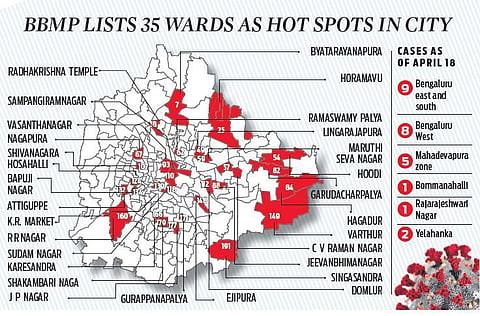

BENGALURU: Along with early screening of COVID-19 patients and implementing preventive measures such as closure of schools and public places, the State government had also started mental health care and treatment for the COVID-19 patients and those who were put under self-isolation and quarantine and migrant workers. More than 200 mental health professionals under the District Mental Health programme across the State are working day and night to address the mental health issues.
“There are a lot of psychological issues that people are experiencing -- from anxiety, stigma and depression to fear and guilt,” said Dr Rajani, deputy director, Mental Health, Department of Health & Family Welfare. “COVID-19 patients go through a cycle of anxiety, depression and guilt, on whether they have transmitted the disease to someone else, especially their family members and close contacts. Tele-counselling patients and those who are in self-isolation or quarantine makes a lot of difference to them. As they begin to recover, they start feeling better mentally as well.
It is gratifying for us when we see them recover and leave the hospital,” she added. Mental health professionals are also helping COVID-19 patients to cope with their angst and that of their neighbourhood. “We had a professional, who had tested positive, following which, the residents in his apartment were put under quarantine. They were angry with him for this. I spoke to them and made them understand that he was not to be blamed and their quarantine was necessary for their health and that it was a matter of a few days,” said Dr Rajani.
Regarding some incidents of attack on healthcare professionals , she said it is important to build a rapport with the people and win their trust. “They want to know why they should be tested for COVID-19 or put under self-isolation or quarantine when they have no symptoms. Most of them are scared. We explain to them that they were in contact with someone, who tested positive and that these measures have been put in place by the government. Thousands of people are being tracked under contact tracing. Barring some stray incidents, majority of them co-operate with the healthcare professionals and ASHA workers,” she said.
Tipplers’ withdrawal symptoms a concern
Teams of mental health professionals are also reaching out to thousands of migrant workers, who have been lodged in different government shelters. Alcohol withdrawal symptoms are common among some migrant workers, expert said.